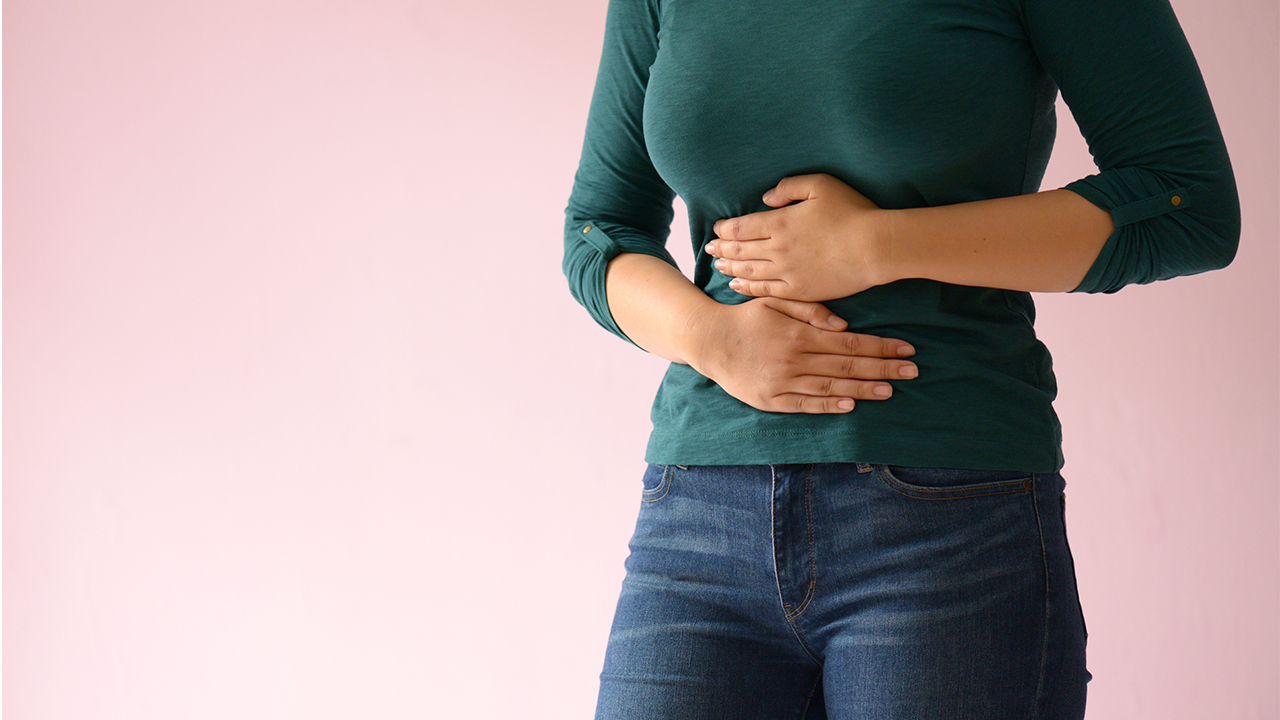Could You Have IBS and Not Know It?
Decoding what’s normal (and what’s not) with your gut

In partnership with Renew Life®
Constipation, gas, diarrhea and bloating are things that many of us experience on the regular, with varying degrees of severity. They’re just a part of life…right? Heck no, says Dr. Sara Celik. “While it may be true that gastrointestinal symptoms are common, it doesn’t mean that they are normal or healthy.”
Dr. Celik is a naturopathic doctor and Renew Life spokesperson who’s seen countless patients suffering from these sorts of symptoms. They often end up at her clinic after being dismissed by other healthcare providers precisely because their complaints are brushed off as just your standard Canadian gut–when really they’re suffering from medical conditions that are totally treatable. “My patients are often surprised by how great they feel [after seeking my help] and regret accepting their discomfort as ‘normal.’
To help us learn more about this, we’ve tapped Dr. Celik for her expert advice on decoding all of our digestive woes—and how we can use strategies from probiotics to yoga to treat them.
#1 Persistent gas, bloating and constipation? You might have Irritable Bowel Syndrome
Irritable Bowel Syndrome is the most commonly diagnosed gastrointestinal issue. However, Dr. Celik says many sufferers never get diagnosed because they don’t seek medical help– and of the people who do seek help, “it takes an average of four years before patients get an actual diagnosis.” Approximately 120,000 Canadians are diagnosed with the chronic functional bowel disorder each year, and experts estimate between 5 and 20 percent of people have IBS. Dr. Celik goes on to say that it’s more common in women under 50, and tends to present in early adulthood.
#2 There is such a thing as “mild” IBS
“Dr. Celik says that while some people can suffer severe symptoms, for others it can be quite mild. “It’s a chronic condition, which means symptoms can come and go,” she says. “It’s important to recognize that even mild IBS should not be ignored. The body has one way of communicating with us and that’s through symptoms.” In other words: Trust your gut.
#3 “Balance” isn’t just a buzzword—it’s key to your gut health
According to Dr. Celik, dysbiosis is “a microbial imbalance in the gut” that research, published in the National Center for Biotechnology Information, suggests might be a predominant factor in IBS. “The human body is home to trillions of microorganisms, most of which live in the gut. Maintaining the delicate balance of these microorganisms is important for good health,” she says. “Unfortunately, the modern day lifestyle can lead to an imbalance of microorganisms in the gut and increase the risk of developing certain health conditions, such as IBS.” Things that can throw this out of whack include stress, medications like antibiotics, and a lack of fibre in your diet.
#4 Probiotics might be key to restoring that balance
IBS sufferers appear to have more of an inflammatory (aka bad) bacteria and less of the good kinds, like Lactobacillus and Bifidobacterium. When you take a probiotic, you’re adding back in that “protective” bacteria in order to restore balance in your gut flora. Dr Celik has been using probiotics in her practice for over 15 years, and prefers what she calls “targeted” formulas. “For example, IBS patients that notice their symptoms are worse with stress may want to consider a probiotic formula designed for mood and stress,” she says. “That contains specific clinically studied bacterial strains for stress-related gastrointestinal complications such as abdominal pain.” One option is Renew Life’s Mood and Stress Probiotic, which contains 30 billion live cultures and Lactobacillus helveticus R0052 and Bifidobacterium longum subspecies longum R0175—the two probiotic strains Dr Celik says to look out for.
#5 You probably don’t want to hear this but…you may have to change how you eat
Many IBS sufferers find symptom relief when they follow a low FODMAP diet, which eliminates foods that Dr Celik says are high in fermentable oligosaccharides, disaccharides, and monosaccharides and polyols, such as garlic, onions, cauliflower, beans, lentils, wheat, cashews, dairy with lactose, and apples, to name a few.” That’s not for everyone, however, so if you aren’t doing that, consider adding a product like Renew Life’s Daily Balance Probiotics and Organic Prebiotics. “It contains the probiotic strain Bifidobacterium animalis subspecies lactis HN019,” says Dr Celik. “This probiotic strain has been clinically shown to reduce frequency of gas, bloating, and constipation. Additionally, prebiotics stimulate the growth of Bifidobacteria in the colon, which appears reduced in IBS patients.”
#6 Stressed? Relaxation might be part of your IBS prescription
Being able to manage your IBS means learning your triggers. While many people find that certain food can set it off, there are often other, unexpected triggers like alcohol, caffeine, travelling or not enough rest. If that’s you, says Dr Celik, “I often recommend yoga, meditation, and natural supplements to help reduce stress and improve sleep quality.”









